Reading comprehension Rhyming Words Worksheets for Ages 6-9
8 filtered results
-
From - To
Explore our engaging collection of Rhyming Words Worksheets designed for children aged 6-9! These worksheets not only enhance reading comprehension but also build essential phonetic skills through fun, interactive activities. Kids will enjoy identifying, matching, and creating rhymes while strengthening their vocabulary and understanding of word patterns. By integrating games and creative exercises, our resources keep young learners motivated and eager to dive into the world of reading. Perfect for both classroom and home learning, these worksheets provide valuable practice that helps children develop confidence in their reading abilities. Discover the joy of learning with our rhyming words resources today!
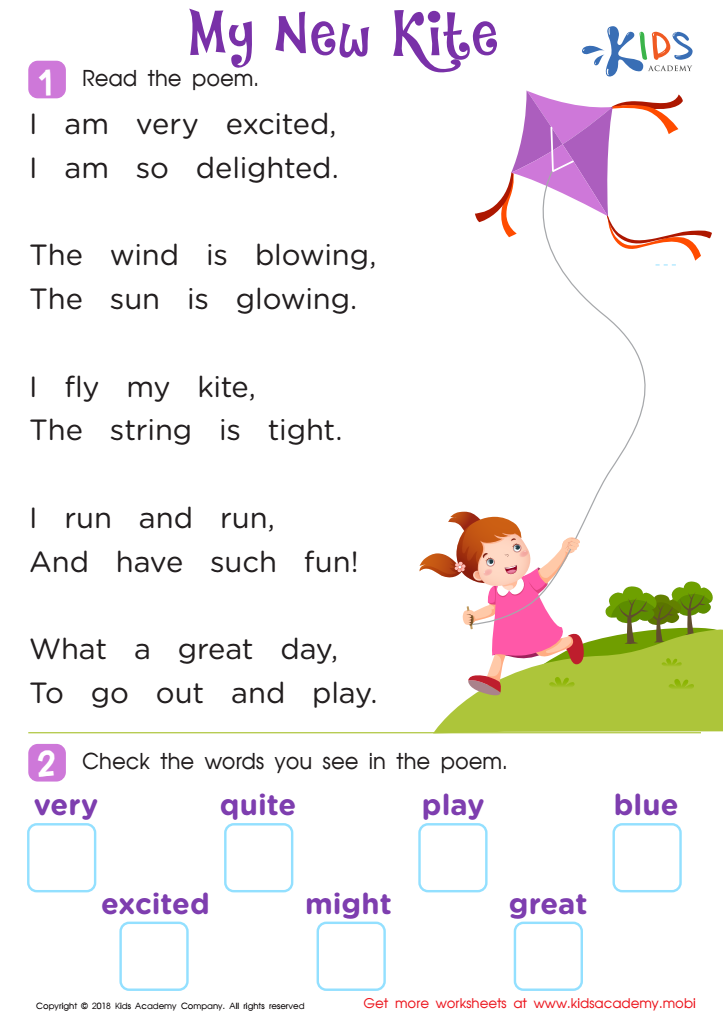

Poem: My New Kite Worksheet
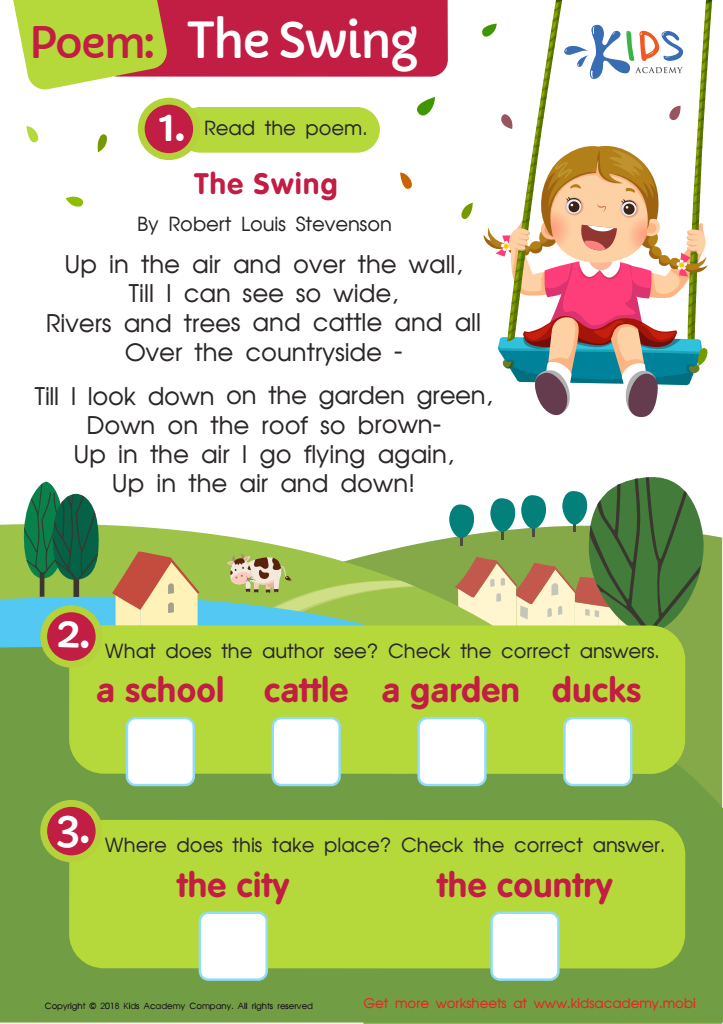

Poem: The Swing Worksheet


Rhyming Words Rhyming Worksheet
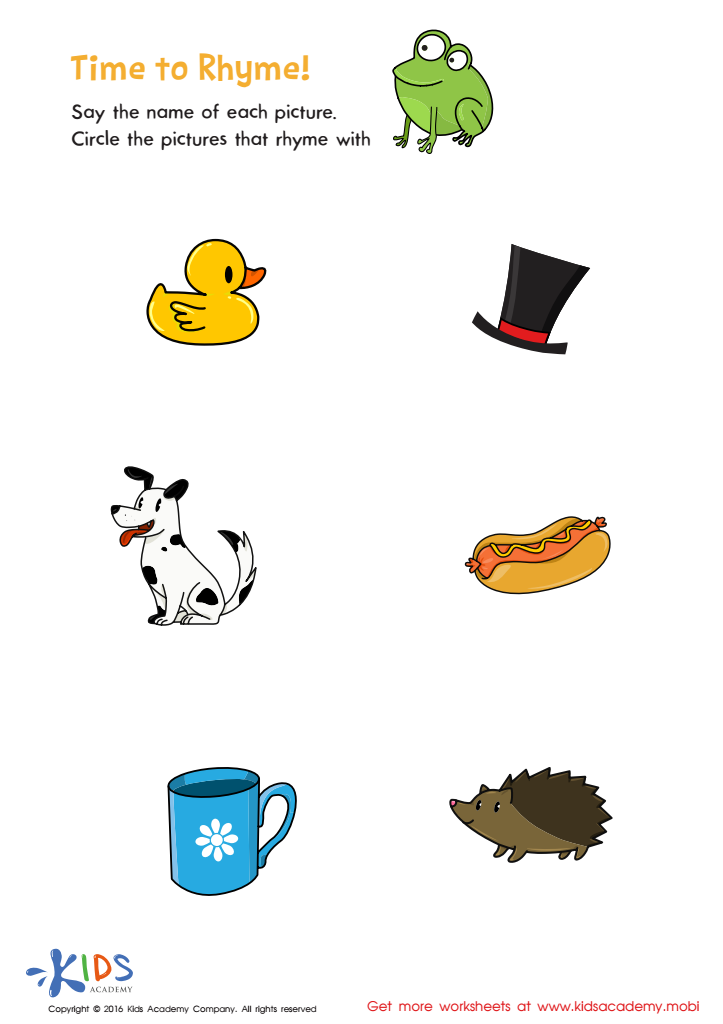

Rhyming Worksheet: Time to Rhyme Rhyming Worksheet


First Words: Picture Rhymes Worksheet
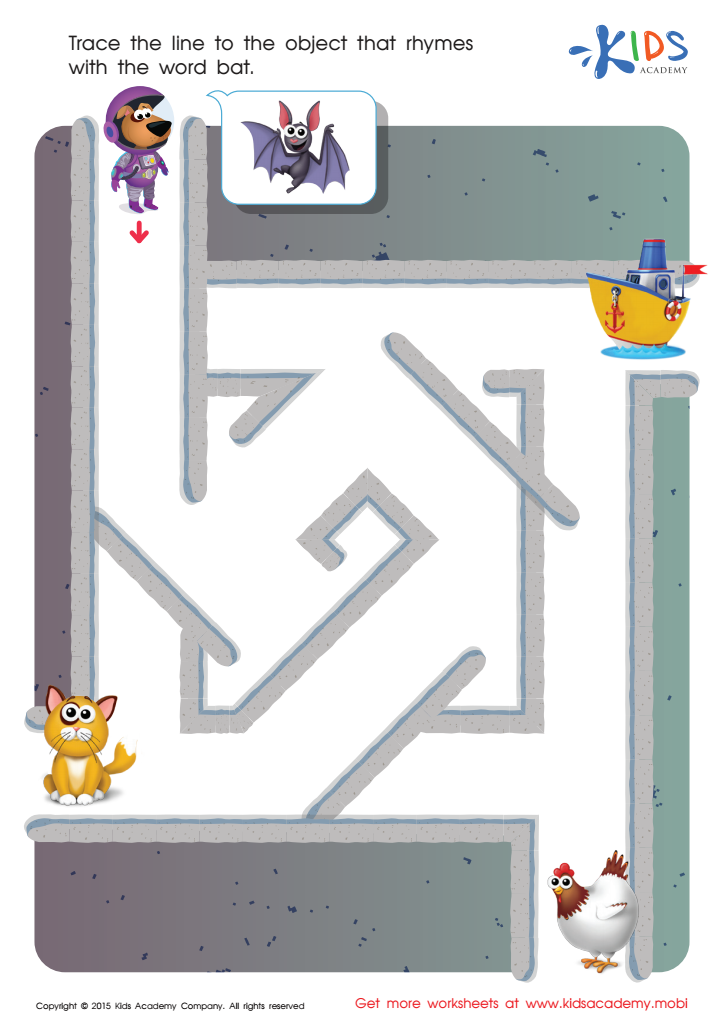

Bat Rhyming Words Worksheet
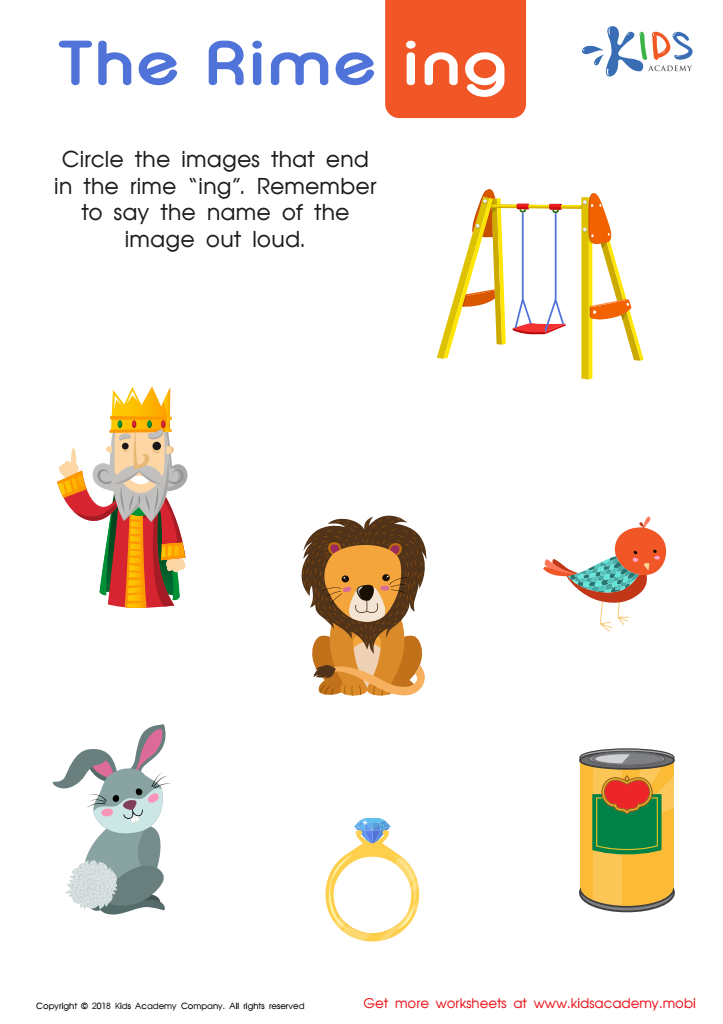

The Rime "ing" Worksheet
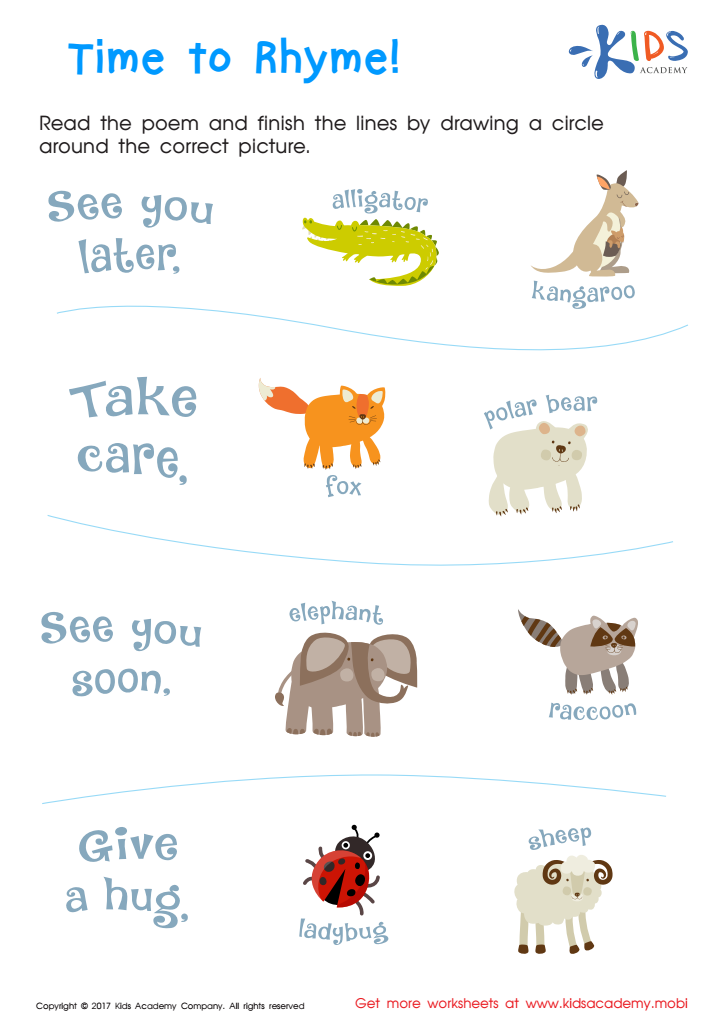

Time to Rhyme Rhyming Worksheet
Reading comprehension and rhyming words are foundational skills that play a vital role in children's literacy development, particularly for ages 6-9. Parents and teachers should prioritize these skills because they significantly enhance a child's ability to understand and engage with text. Rhyming words, in particular, support phonemic awareness—the ability to hear and manipulate sounds in words—which is crucial for reading success.
When children are exposed to rhyming patterns, they learn to identify word families and similar sounds, making it easier to decode new words. This helps build their vocabulary and boosts their confidence in reading. Moreover, integrating rhyme into reading activities makes learning enjoyable, fostering a positive attitude towards literacy.
Comprehension, on the other hand, involves understanding the meaning of what they read. Strong reading comprehension skills enable children to connect with stories, ask meaningful questions, and develop critical thinking. As they progress through the early grades, these skills become essential for achieving academic success across all subjects.
Fostering reading comprehension and rhyming skills not only helps children excel in literacy but also prepares them for lifelong learning. In short, both parents and teachers play a critical role in nurturing these skills, laying the foundation for children's future educational journeys.
 Assign to My Students
Assign to My Students





















